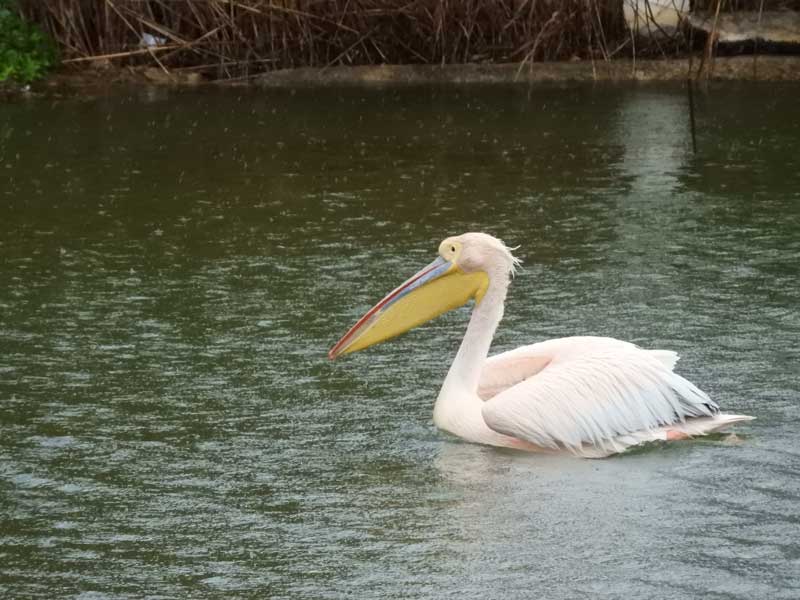Empathy in facilitation
20 July 2023

By Yusra Price
Empathy is described as an emotional connection between people that is used to understand the experiences, thoughts and feelings of another as if you were “in their shoes”. I’ve always valued empathy as a way of softening myself towards others. It encourages reflexivity and patience. It moves me towards being non-judgemental and taking the lived experience of others in a serious and heartfelt way. For a very long time I did not see a fault with empathy. In fact, I tried my best to learn it better because it had a positive effect on my relationships.
It was during my time at university where I learned about researcher empathy, let’s call it, and the long periods of fieldwork that went into fostering good relationships with others. It was in my Anthropology lectures where I learned about cultural relativism as a concept of suspending personal judgement for the sake of allowing other ways knowing and being come to the fore. This concept combined empathy with research practice and as with any critical eye, I was taught to consider the unintended consequences of assuming that being empathetic did not have its oversights. It was during a conversation with friends where we discussed the limitations of empathy. Being able to empathise may nurture our relationships with others in good ways, but to believe that empathy gives you an objective, accurate and unaffected position from which to see someone else’s life (and struggles especially), is naïve. From this point on we can go in many directions to talk about the arguments made about “lived experience”, but I want to return to the lesson that I learned from this conversation.
I remember taking this lesson to heart. There are moments during a workshop when people's stories take place in lived experiences different from my own and my role, as a facilitator, is to hold the space in which they share with others. I have the responsibility of making people feel comfortable and safe enough to share personal stories. However, I am not the only one committed to this task. Each person in the group must actively take part in ‘safe spacing’ so that we eventually reach a place of group trust. At times, difficult stories come out and while they are being told I question whether it is appropriate for me, as Yusra, to be privy to their details and still provide feedback on the storyteller’s delivery. But a bit of balance to my concerns comes from a personal reflection: my role is not to find the words, "I understand", but to show the words, "I hear you". If I become overly self-conscious about our differences, I might overlook chances to appreciate and learn from others. Of course, I remain self-aware and make a point of keeping in mind the contexts that shape our differences, but it helps to find the balance so that I do not render myself incapable of being and participating in those very spaces.
Empathy in facilitation, to me, requires many layers of honesty with myself and with the people in my workshop. For one, I cannot ask others to be vulnerable if I am not willing to share personal thoughts, worries, or stories with them in return. I do not have to divulge the details of my life, but there are moments in the workshop when sharing something personal shows that I am not a neutral person in the process. In our most recent workshop, the familiar prompt, "I remember she said...", came up during our free writing session and I began to write. I find this activity very useful in our workshops. It dedicates small portions of time (4 minutes) to write, unfiltered, about our personal thoughts and feelings, however messy the final result is. At the time, I just returned from umrah (pilgrimage to Makkah) with my family, and this prompt drew out a personal reflection about my aging family and being an only child. I began my free writing with the words my aunty said to me, ‘Yusra, I will not travel without you ever again’. I decided that while it is a personal reflection of mine, it was a personal detail I did not mind sharing with the group. It took a bit of bravery but in my practice, if moments like that present themselves to me, I will try my best to take it. Even if I feel momentarily unsettled by how vulnerable I just was. It's a space for sharing for everyone after all.
I believe that being a facilitator is to be present, as myself, with everyone else. I try to be transparent about how I am feeling because, like everyone else in the room, I also become tired, emotional, happy, excited, and even frustrated. When people share, I listen intently and before I give feedback, I think before I speak and mind my words because I do not underestimate how much weight my words could carry. What may pass over one person could settle inside another. Striking a balance between being present, being myself and being the stronghold is an imperfect practice.
There is a lot to reflect on about being a facilitator in the room. I’d like to conclude with a reflection of being a facilitator at the end of a five-day storytelling workshop. The practice is hard, tricky and you give it your all. At the end of each workshop, I feel drained emotionally, mentally and even physically. Recovery takes time, alone time especially. For me, this includes being in my room, with my cat and watching TV or playing games. It’s just me and my family for a few days and I shy away from others just to settle within myself first before I am ready. As a personal practice, I book a therapy appointment soon after the workshop. Here, I have someone to help me make sense of complicated experiences and my feelings towards them. I give myself a bit of empathy, one could say and over time, I’ve figured out what I need in order to recover. It may seem like an over extension of oneself to have such a deeply felt reaction. However, it is rather a discombobulation, a sense of going from a lot of intimate and intense work to your regular, everyday life. There is a period of time that I need to process the stories, my facilitation and the experience overall. It is a matter of giving the same attentiveness to yourself after, that you give to others during the workshop period.
.jpg)
